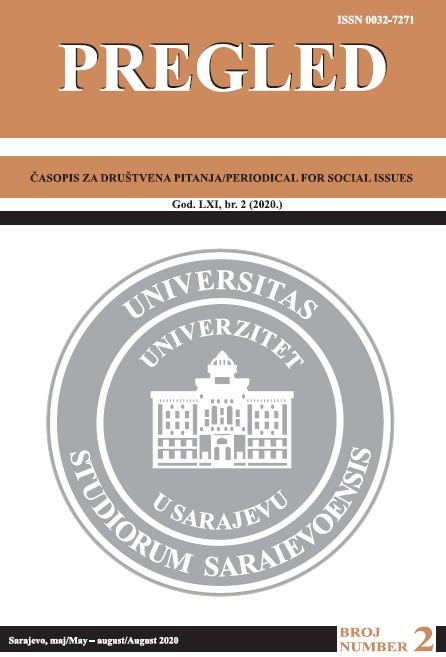PRETPOSTAVKE UBRZANJA INTEGRACIJE BOSNE I HERCEGOVINE U EVROPSKU UNIJU
ASSUMPTIONS OF ACCELERATED INTEGRATION OF BOSNIA AND HERZEGOVINA IN THE EUROPEAN UNION
Author(s): Mirko PejanovićSubject(s): Political history, Government/Political systems, International relations/trade, Political behavior, Politics and society, Economic development, Transformation Period (1990 - 2010), Present Times (2010 - today), EU-Approach / EU-Accession / EU-Development, Peace and Conflict Studies
Published by: Univerzitet u Sarajevu
Keywords: Dayton Peace Agreement; Bosnia and Herzegovina; Stabilization and Association Agreement; Parliamentary Assembly of Bosnia and Herzegovina; Peace Implementation Council; European Union;
Summary/Abstract: After the Dayton Peace Agreement in 1995, Bosnia and Herzegovina entered the socio-historical process of peace building. Peace building takes place through the activities of democratic forces in Bosnia and Herzegovina and the institutions of the international community and the European Union, all under the Dayton Peace Agreement’s authority. In the historical context of peace building in Bosnia and Herzegovina during the post-war and post-Dayton period, the integration of Bosnia and Herzegovina into the European Union is a strategic and historical project in the first decades of the XXI century. With the signing of the Stabilization and Association Agreement between Bosnia and Herzegovina and the European Commission, the process of Bosnia and Herzegovina's integration into the European Union started in 2008 as a contractual relationship. The delay in that Agreement’s implementation lasted until 2015, when a new course of integration of Bosnia and Herzegovina into the European Union was initiated by the German-British initiative. During 2018, the European Commission accepted the answers given by the state of Bosnia and Herzegovina to the Questionnaire filled in by all countries that are in the phase of obtaining the candidate status for the European Union membership. In addition to accepting the answer to the Questionnaire, the European Commission has established an opinion with 14 priorities, in several areas of social development, which the state of Bosnia and Herzegovina must implement through reforms. Due to the parliamentary elections in 2018 and the delay in forming the government in 2019, Bosnia and Herzegovina lost two years in carrying out reforms in the EU integrative process.
Journal: PREGLED - časopis za društvena pitanja
- Issue Year: LXI/2020
- Issue No: 2
- Page Range: 69-89
- Page Count: 21
- Language: Bosnian

